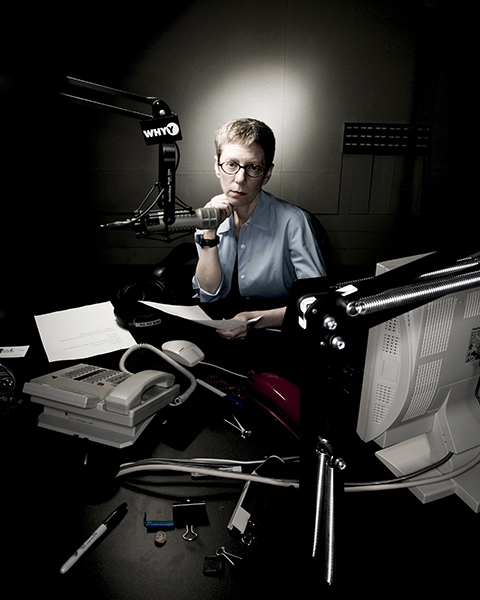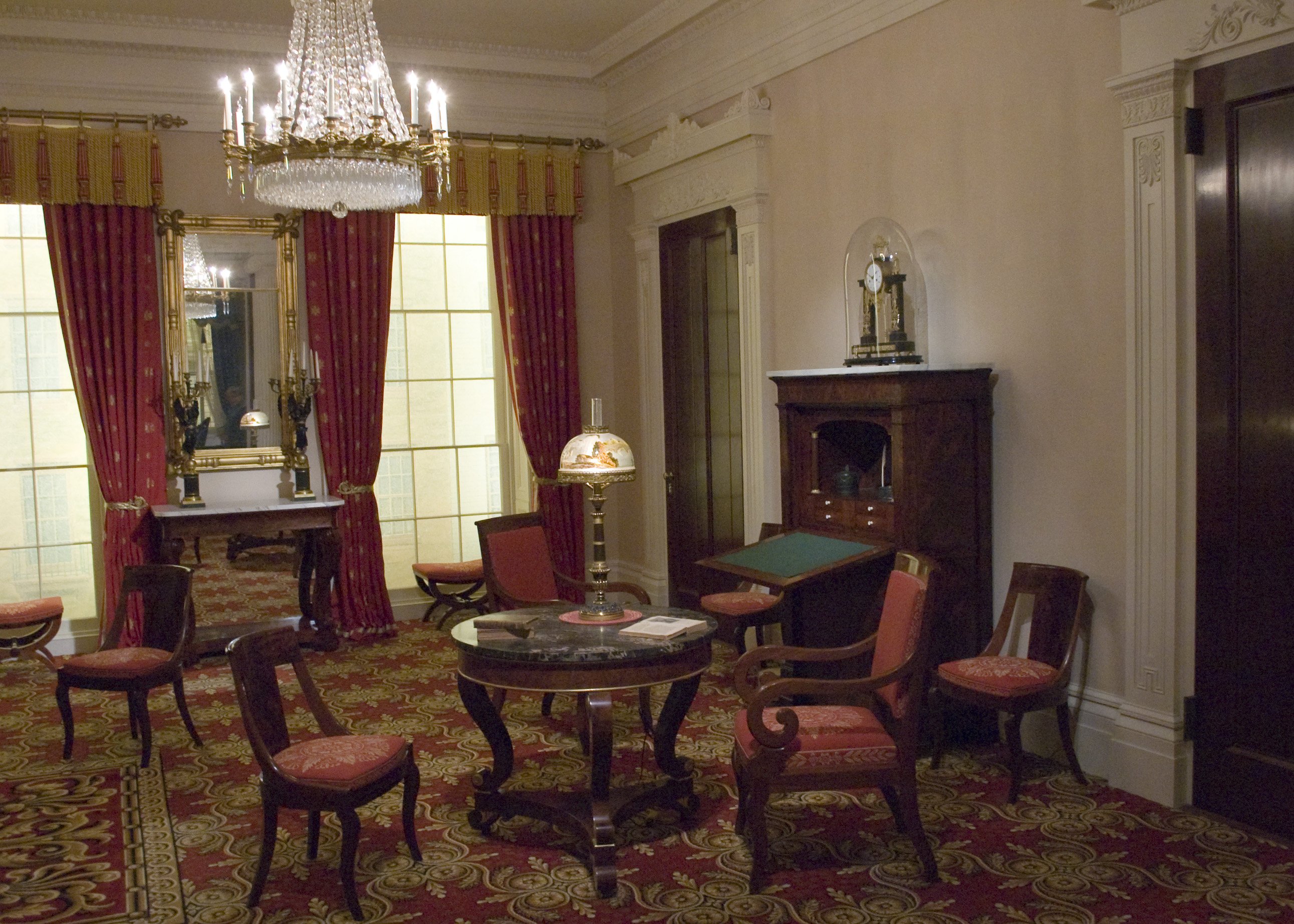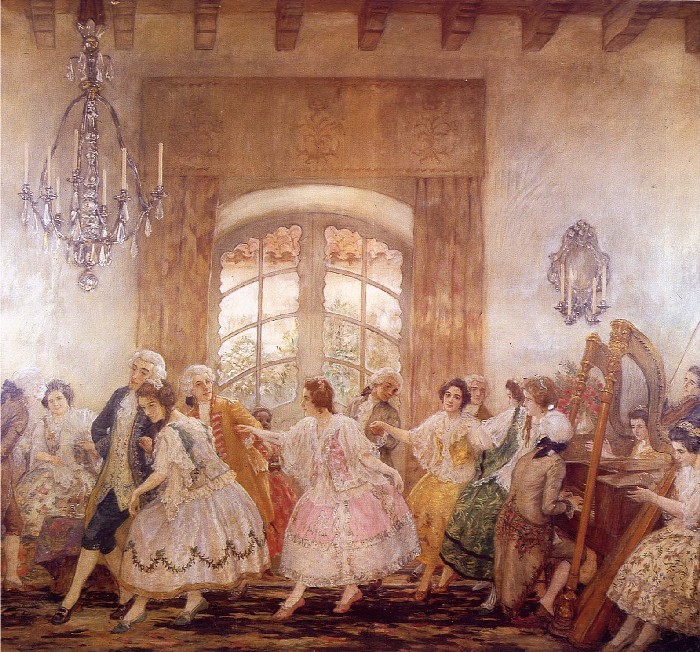|
Pullman Porters
Pullman porters were men hired to work for the railroads as porters on sleeping cars. Starting shortly after the American Civil War, George Pullman sought out former slaves to work on his sleeper cars. Their job was to carry passengers’ baggage, shine shoes, set up and maintain the sleeping berths, and serve passengers. Pullman porters served American railroads from the late 1860s until the Pullman Company ceased its United States operations on December 31, 1968, though some sleeping-car porters continued working on cars operated by the railroads themselves and, beginning in 1971, Amtrak. The Pullman Company also operated sleeping cars in Mexico from the 1880s until November 13, 1970. The term "porter" has been superseded in modern American usage by "sleeping car attendant", with the former term being considered "somewhat derogatory". Until the 1960s, Pullman porters in the United States were almost exclusively black, and have been widely credited with contributing to the deve ... [...More Info...] [...Related Items...] OR: [Wikipedia] [Google] [Baidu] |
Pullman Porter Helping Woman
Pullman may refer to: Places in the United States *Pullman, Chicago, Illinois * Pullman, Michigan * Pullman, Texas *Pullman, Washington * Pullman, West Virginia * Pullman Lake, a lake in Minnesota * Pullman neighborhood, in the city of Richmond, California Surname * Alberte Pullman (1920–2011), theoretical and quantum chemist, wife of Bernard *Alfred Pullman (1916–1954), a British soldier and airman * Bernard Pullman (1919–1996), theoretical and quantum chemist, husband of Alberte * Bill Pullman (born 1953), American actor * George Pullman (1831–1897), founder of the Pullman Company * Joe Pullman (1876–1955), Wales international rugby union player * Lewis Pullman (born 1993), American actor * Philip Pullman (born 1946), English writer * Simon Pullman (1890–1942), violinist and founder of the Warsaw Ghetto Symphony Orchestra Transport Road * Humber Pullman, a large automobile manufactured in central England between 1930 and 1954 * Mercedes-Benz S Class, German limo ... [...More Info...] [...Related Items...] OR: [Wikipedia] [Google] [Baidu] |
Fresh Air
''Fresh Air'' is an American radio talk show broadcast on National Public Radio stations across the United States since 1985. It is produced by WHYY-FM in Philadelphia, Philadelphia, Pennsylvania. The show's hosts are Terry Gross and Tonya Mosley. , the show was syndicated to 624 stations and claimed nearly 5 million listeners. The show is fed live weekdays at 12:00 noon Eastern Time Zone, ET. In addition, some stations carry ''Fresh Air Weekend'', a re-programming of highlights of the week's interviews. In 2016, ''Fresh Air'' was the most-downloaded podcast on iTunes. Overview The show began in 1975 at WHYY (then called WUHY), with Judy Blank as host. In September of that year, Terry Gross took over as presenter and producer; nearly 50 years later she remains its chief presenter. In 1985, WHYY launched a weekly half-hour edition of ''Fresh Air'', which was distributed nationally by NPR. The show began daily national broadcasts in 1987. The show is composed primarily of i ... [...More Info...] [...Related Items...] OR: [Wikipedia] [Google] [Baidu] |
Oriental Limited Dining Car
The Orient is a term referring to the East in relation to Europe, traditionally comprising anything belonging to the Eastern world. It is the antonym of the term ''Occident'', which refers to the Western world. In English, it is largely a metonym for, and coterminous with, the continent of Asia – loosely classified into Southwest Asia, Southeast Asia, South Asia, Central Asia, East Asia, and sometimes including the Caucasus. Originally, the term ''Orient'' was used to designate only the Near East, but later its meaning evolved and expanded, designating also Central Asia, Southwest Asia, South Asia, Southeast Asia, or the Far East. The term oriental is often used to describe objects and (in a derogative manner) people coming from the Orient/eastern Asia. Etymology The term "Orient" derives from the Latin language, Latin word ''oriens'', meaning "east" (lit. "rising" < ''orior'' "rise"). The use of the word for "rising" to refer to the east (where the sun rises) has analogu ... [...More Info...] [...Related Items...] OR: [Wikipedia] [Google] [Baidu] |
Parlor Car-Oriental Limited Circa 1910s
A parlour (or parlor) is a reception room or public space. In medieval Christian Europe, the "outer parlour" was the room where the monks or nuns conducted business with those outside the monastery and the "inner parlour" was used for necessary conversation between resident members. In the English-speaking world of the 18th and 19th century, having a parlour room was evidence of social status. Etymology In the early 13th century, parlor originally referred to a room where monks could go to talk, derived from the Old French word ''parloir'' or ''parler'' ("to speak"), it entered the English language around the turn of the 16th century. History The first known use of the word to denote a room was in medieval Christian Europe, when it designated the two rooms in a monastery where clergy, constrained by vow or regulation from speaking otherwise in the cloister, were allowed to converse without disturbing their fellows. The "outer parlour" was the room where the monks or nuns ... [...More Info...] [...Related Items...] OR: [Wikipedia] [Google] [Baidu] |
Jackie Gleason
Herbert John Gleason (born Herbert Walton Gleason Jr.; February 26, 1916June 24, 1987), known as Jackie Gleason, was an American comedian, actor, writer, and composer also known as "The Great One". He developed a style and characters from growing up in Brooklyn, New York, and was known for his brash visual and verbal comedy, exemplified by his city bus driver character Ralph Kramden in the television series ''The Honeymooners''. He also developed ''The Jackie Gleason Show'', which maintained high ratings from the mid-1950s through 1970. The series originated in New York City, but filming moved to Miami Beach, Florida, in 1964 after Gleason took up permanent residence there. Among his notable film roles were Minnesota Fats (character), Minnesota Fats in 1961's ''The Hustler'' (co-starring with Paul Newman) and Buford T. Justice in the ''Smokey and the Bandit'' trilogy from 1977 to 1983 (co-starring Burt Reynolds). Gleason enjoyed a prominent secondary music career during the 195 ... [...More Info...] [...Related Items...] OR: [Wikipedia] [Google] [Baidu] |
Stanley G
Stanley may refer to: Arts and entertainment Film and television * ''Stanley'' (1972 film), an American horror film * ''Stanley'' (1984 film), an Australian comedy * ''Stanley'' (1999 film), an animated short * ''Stanley'' (1956 TV series), an American situation comedy * ''Stanley'' (2001 TV series), an American animated series Other uses in arts and entertainment * ''Stanley'' (play), by Pam Gems, 1996 * Stanley Award, an Australian Cartoonists' Association award * '' Stanley: The Search for Dr. Livingston'', a video game Businesses * Stanley, Inc., an American information technology company * Stanley Aviation, an American aerospace company * Stanley Black & Decker, formerly The Stanley Works, an American hardware manufacturer ** Stanley Hand Tools, a division of Stanley Black & Decker * Stanley bottle, a brand of food and beverage containers * Stanley Electric, a Japanese manufacturer of electric lights * Stanley Furniture, an American furniture manufacturer * ... [...More Info...] [...Related Items...] OR: [Wikipedia] [Google] [Baidu] |
Society For The Prevention Of Calling Sleeping Car Porters "George"
The Society for the Prevention of Calling Sleeping Car Porters "George" (SPCSCPG) was founded as a joke by lumber baron George W. Dulany in 1914. Membership was open to all those whose first or last name was George. Its early members included Admiral George Dewey, who served as the group's first president, and writer George Ade. Dulany's secretary filled out and mailed more than 45,000 membership cards to people named "George" throughout the world, before Dulany retired from public life. Rationale At the time, railway sleeping car porters in the United States were commonly referred to by the name "George" regardless of their actual name. The appellation may have stemmed from the name of George Pullman of the Pullman Company, which at one time manufactured and operated a large proportion of all the sleeping cars in North America. Porters were almost exclusively Black, and the practice presumably derived from the old custom of naming slaves after their masters, in this case port ... [...More Info...] [...Related Items...] OR: [Wikipedia] [Google] [Baidu] |
Pullman Porter Making An Upper Berth Aboard The Capitol Limited Bound For Chicago
Pullman may refer to: Places in the United States *Pullman, Chicago, Illinois * Pullman, Michigan * Pullman, Texas *Pullman, Washington * Pullman, West Virginia * Pullman Lake, a lake in Minnesota * Pullman neighborhood, in the city of Richmond, California Surname * Alberte Pullman (1920–2011), theoretical and quantum chemist, wife of Bernard * Alfred Pullman (1916–1954), a British soldier and airman * Bernard Pullman (1919–1996), theoretical and quantum chemist, husband of Alberte * Bill Pullman (born 1953), American actor * George Pullman (1831–1897), founder of the Pullman Company * Joe Pullman (1876–1955), Wales international rugby union player * Lewis Pullman (born 1993), American actor * Philip Pullman (born 1946), English writer * Simon Pullman (1890–1942), violinist and founder of the Warsaw Ghetto Symphony Orchestra Transport Road * Humber Pullman, a large automobile manufactured in central England between 1930 and 1954 * Mercedes-Benz S Class, German l ... [...More Info...] [...Related Items...] OR: [Wikipedia] [Google] [Baidu] |
Porter (carrier)
A porter, also called a bearer, is a person who carries objects or cargo for others. The range of services conducted by porters is extensive, from shuttling luggage aboard a train (a railroad porter) to bearing heavy burdens at altitude in inclement weather on multi-month mountaineering expeditions. They can carry items on their backs ( backpack) or on their heads. The word "porter" derives from the Latin ''portare'' (to carry). The use of humans to transport cargo dates to the ancient world, prior to domesticating animals and development of the wheel. Historically it remained prevalent in areas where slavery was permitted, and exists today where modern forms of mechanical conveyance are impractical or impossible, such as in mountainous terrain, or thick jungle or forest cover. Over time, slavery diminished and technology advanced, but the role of porter for specialized transporting services remains strong in the 21st century. Examples include bellhops at hotels, redcaps a ... [...More Info...] [...Related Items...] OR: [Wikipedia] [Google] [Baidu] |
Upper Class
Upper class in modern societies is the social class composed of people who hold the highest social status. Usually, these are the wealthiest members of class society, and wield the greatest political power. According to this view, the upper class is generally distinguished by immense wealth which is passed on from generation to generation. Prior to the 20th century, the emphasis was on ''aristocracy'', which emphasized generations of inherited noble status, not just recent wealth. Because the upper classes of a society may no longer rule the society in which they are living, they are often referred to as the old upper classes, and they are often culturally distinct from the newly rich middle classes that tend to dominate public life in modern social democracies. According to the latter view held by the traditional upper classes, no amount of individual wealth or fame would make a person from an undistinguished background into a member of the upper class as one must be born in ... [...More Info...] [...Related Items...] OR: [Wikipedia] [Google] [Baidu] |
Middle Class
The middle class refers to a class of people in the middle of a social hierarchy, often defined by occupation, income, education, or social status. The term has historically been associated with modernity, capitalism and political debate. Common definitions for the middle class range from the middle fifth of individuals on a nation's income ladder, to everyone but the poorest and wealthiest 20%. Theories like "Paradox of Interest" use decile groups and wealth distribution data to determine the size and wealth share of the middle class. Terminology differs in the United States, where the term ''middle class'' describes people who in other countries would be described as working class. There has been significant global middle-class growth over time. In February 2009, ''The Economist'' asserted that over half of the world's population belonged to the middle class, as a result of rapid growth in emerging countries. It characterized the middle class as having a reasonable amo ... [...More Info...] [...Related Items...] OR: [Wikipedia] [Google] [Baidu] |





